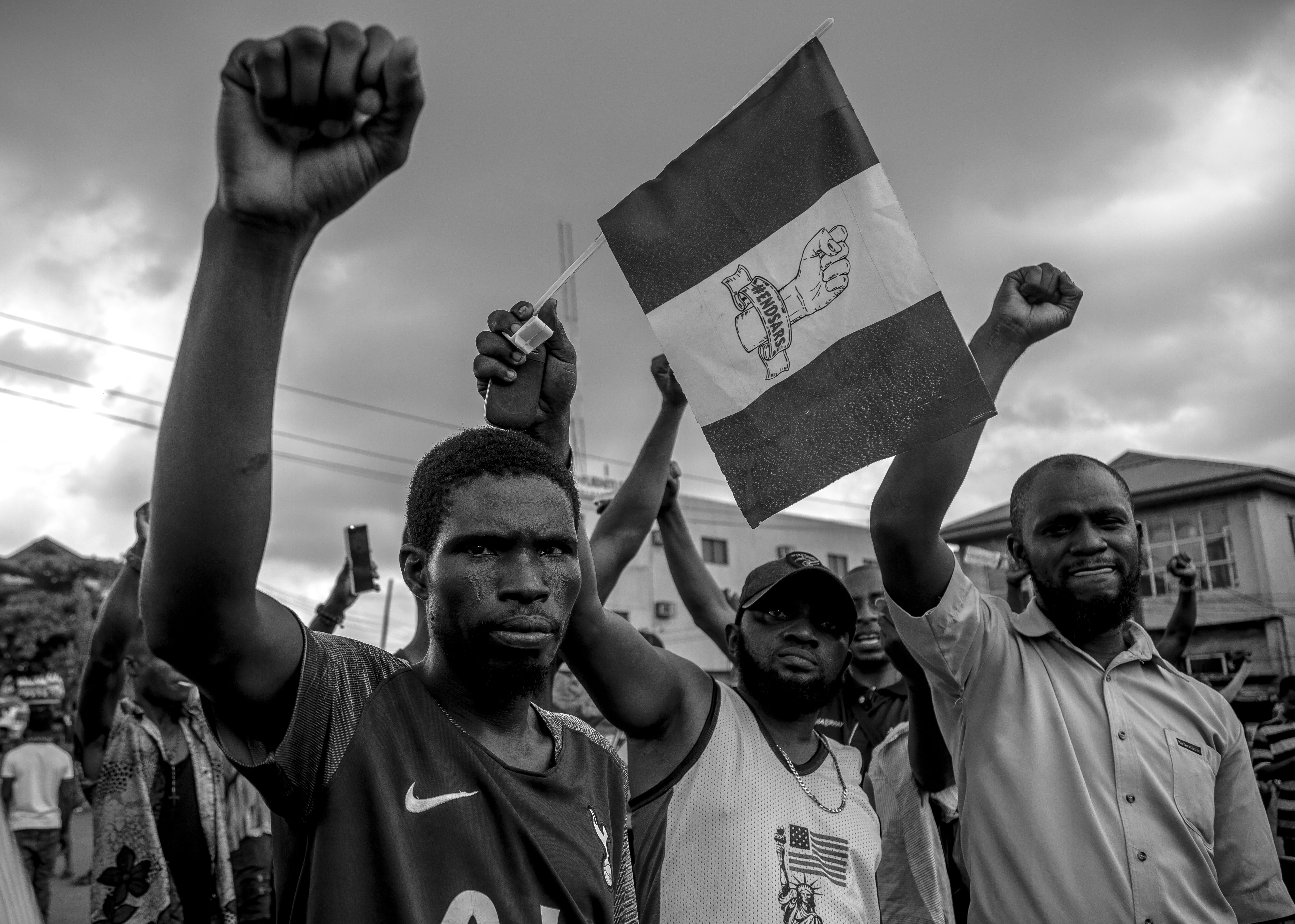On June 12, 2021, Nigerian youths protesting rising unemployment and a dramatic spike in insurgency and kidnapping across the country were greeted with teargas and hurriedly dispersed by overzealous law enforcement officials. Such punitive actions against protesters are worrisome, as they undermine citizens’ right to air grievances and demand accountability from the government.
The Nigerian constitution guarantees the right of citizens to assemble, which, by all intents, also covers the freedom to protest peacefully. The right to protest also features in several international accords, many of which count Nigeria as a member.
Despite various legal instruments backing the right of citizens to protest, President Muhammadu Buhari has shown a marked aversion to public dissent and criticism. Using its monopoly of state power, the federal government has successfully shut down many protests violently across the country.
In 2019, security forces allegedly killed eleven Shiite protesters in Abuja. Also, Amnesty International published a damning report in 2019 alleging that armed forces killed dozens of IPOB protesters between 2015 and 2016.
[perfectpullquote align=”right” bordertop=”false” cite=”” link=”” color=”” class=”” size=””]As a regional leader, Nigeria must promote the adoption of democratic ideals, which included the right to free expression and association.[/perfectpullquote]
These cases reflect the current administration’s hardly concealed dislike of protests and its disrespect of the rights to peaceful assembly and the freedom of expression. Perhaps the President’s aversion to protests is ironic, given that he protested in the past, criticizing the then ruling government for the same sins his administration now routinely commits.
The current opposition to protests in Nigeria cannot continue, otherwise, the nation’s fragile democracy may be threatened. The Nigerian state’s anti-protest culture further undermines its commitment to promoting democratic ideals, given its membership in Open Government Partnership. Meanwhile, protests are an important instrument in maintaining democracies.
As a regional leader, Nigeria must promote the adoption of democratic ideals, which included the right to free expression and association. The government must disallow the use of force against peaceful protesters and promulgate legislation banning the illegal detention, harassment, and intimidation of protesters.
Furthermore, the government should provide adequate channels of redress for protesters who may have suffered unjust treatment because of their involvement in protests. Equally, it must sanction errant officers and punish them publicly. This will increase the trust of citizens in the government’s ability to protect their basic rights, including the freedom of expression and association.
It is only by allowing citizens to air grievances and communicate demands through protests that a country can encourage greater accountability, drive change, spur political consciousness, and build a better society. This is advice President Buhari and his administration must consider.
Emmanuel Awosika is a freelance writer and journalist, studying communications at the University of Lagos. He can be reached via email.
Photo by Ayanfe Olarinde on Unsplash.

